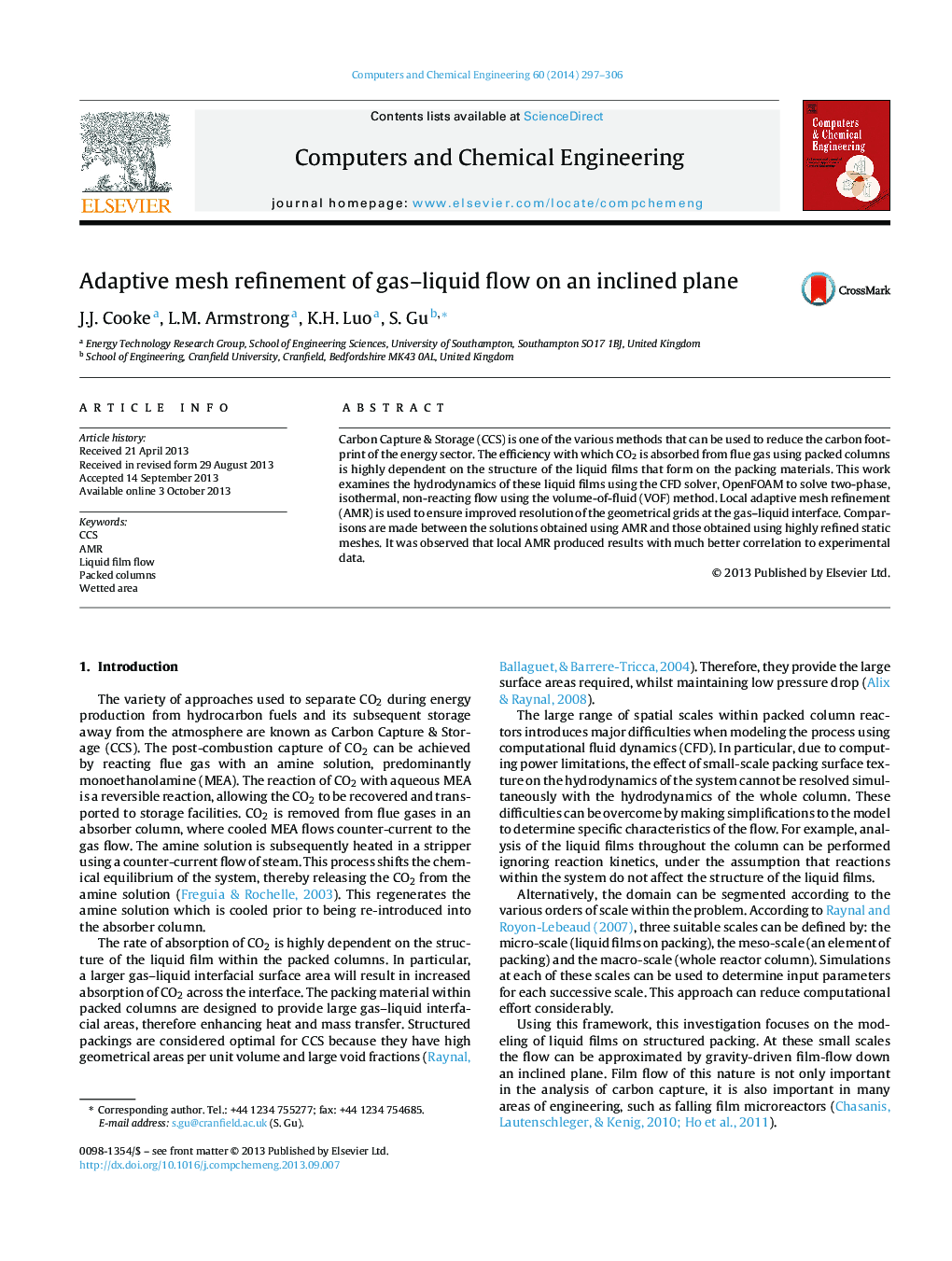| Article ID | Journal | Published Year | Pages | File Type |
|---|---|---|---|---|
| 172441 | Computers & Chemical Engineering | 2014 | 10 Pages |
•CFD simulations of gravity-driven flow down an inclined plane were performed.•This domain can provide an approximation of the flow within structured packing.•Static mesh techniques were compared with adaptive mesh refinement techniques.•Adaptive mesh refinement was more able to replicate experimental results.
Carbon Capture & Storage (CCS) is one of the various methods that can be used to reduce the carbon footprint of the energy sector. The efficiency with which CO2 is absorbed from flue gas using packed columns is highly dependent on the structure of the liquid films that form on the packing materials. This work examines the hydrodynamics of these liquid films using the CFD solver, OpenFOAM to solve two-phase, isothermal, non-reacting flow using the volume-of-fluid (VOF) method. Local adaptive mesh refinement (AMR) is used to ensure improved resolution of the geometrical grids at the gas–liquid interface. Comparisons are made between the solutions obtained using AMR and those obtained using highly refined static meshes. It was observed that local AMR produced results with much better correlation to experimental data.
